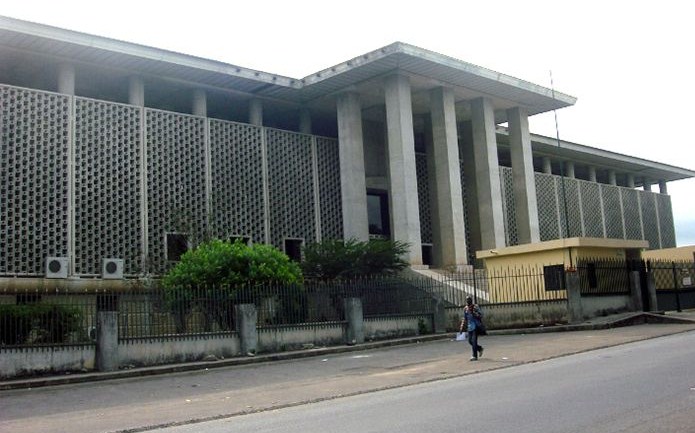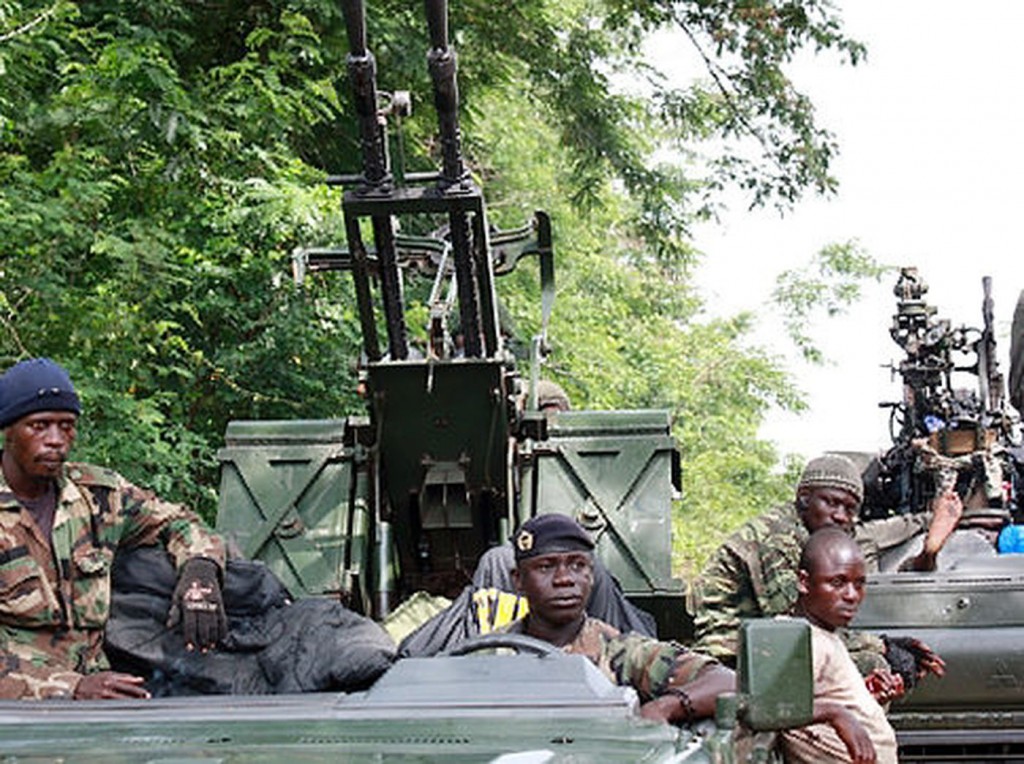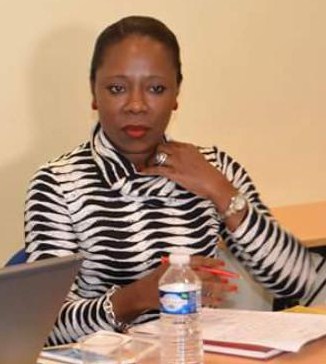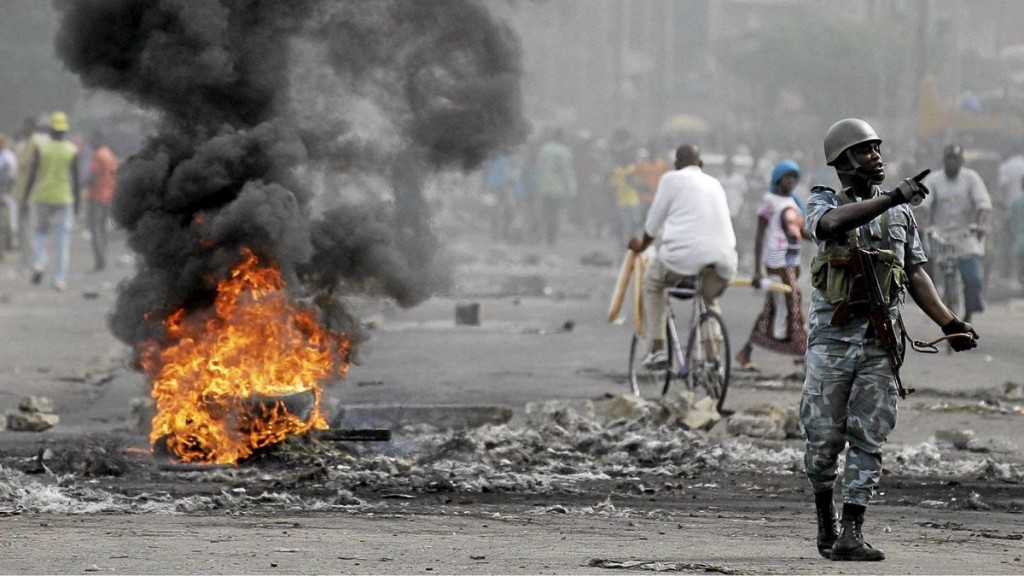Victor’s justice and the uphill road to national reconciliation in Cote d’Ivoire

BY SOUMANOU SALIFOU
In an unprecedented move since the wheels of justice got in motion seven years ago to prosecute the perpetrators of atrocities during the post-election civil war that shattered Cote d’Ivoire in late 2010-early 2011 claiming more than 3,000 lives, the nation’s general prosecutor, Leonard Lebry, in early May this year provided an account of the cases prosecuted so far and the verdicts rendered. The move reignited the ongoing debate about victor’s justice in the country, as some questions remain unanswered.
The communique released by the general prosecutor’s office states:
“From 2012 to 2018, the Abidjan Appeal Court prosecuted 30 cases involving 182 culprits of whom 149 were sentenced for jail terms ranging from five years to life […] Thirty people were acquitted.”
The communique also indicated that the national commission set up especially to handle the cases has indicted hundreds of people involved in the crisis, held thousands hearings and interrogations and exhumed human bodies.
Just two days earlier, ten Ivorian and International human rights organizations had published an open letter to President Alassane Ouattara denouncing a “halted justice” about the war crimes. “Seven years after the grave crimes perpetrated, the victims are still waiting for justice,” the organizations deplore.

Seven years ago, moments after President Alassane Ouattara took the oath of office on 21 May 2011 to start his first 5-year term, he stated in his inaugural speech his resolve to bringing back peace and reconciliation in a country shattered by a post-election civil war that claimed more than 3,000 lives:
“Today, more than yesterday, we need to come together to build our motherland. This is the challenge facing our generation that has the duty to carry Cote d’Ivoire all the way to the new frontiers of development and prosperity. Therefore, like great peoples do, we shall come together and walk together again.”
Mindful that the prosecution of the perpetrators of the war atrocities is the necessary way to the destination of reconciliation, the president later hammered away his commitment to bringing to justice the said perpetrators.
Though the wheels of justice were indeed set in motion, they have so far delivered a largely one-sided justice that doesn’t match the president’s rhetorical commitment, which breaks his promise to help Ivorians “come together and walk together again.”
How the Gbagbo side faced justice
There was not a shred of doubt that then-Ivorian president Laurent Gbagbo, the prime instigator of the post-election violence, lost the 28 November 2010, UN-backed run-off election to then-candidate Alassane Ouattara. Gbagbo’s stubborn refusal to concede defeat—hiding, instead, in an underground bunker at the presidential palace to avoid being captured—triggered the post-election civil war whose socio-political scars will cloud the nation for years. Gbagbo’s transfer, one year later, to The Hague to face justice follows the same pathway that sent Serbia’s Slobodan Milosevic to the same tribunal a decade earlier, not unlike Liberia’s Charles Taylor’s conviction, years later, by the United Nations-backed Special Court for Sierra Leone in The Hague to be held accountable for contributing to the slaughter of their fellow-countrymen.
Laurent Gbagbo’s ongoing trial at the International Criminal Court at The Hague, the trial and the conviction of his wife Simone—who allegedly pushed her husband to not concede defeat, challenging him to prove he is a man—and the trial and conviction of hundreds of their followers clearly serve justice.
But then, the Ivorian civil war was fought, like all wars, by more than one side. The forces that aided the Ouattara side were no angels.
How the Ouattara side did not face justice

Guillaume Soro, who was then-embattled President Gbagbo’s prime minister in November 2011 at the peak of the post-election crisis, unexpectedly switched side at the last hour and joined the effort to force Gbagbo out of power. Soro’s loosely-organized armed forces (dubbed Cote d’Ivoire’s Republican Forces) fought the relatively easy ground war from the interior of the country all the way to Abidjan, the nation’s largest and economic hub, where they met a ferocious resistance put up by the superior national armed forces. [In the end, international pressure, with then-French president Nicolas Sarkozy in the lead, gave the last push that led to Gbagbo’s capture.]
The Ouattara side of the war was clearly also responsible for documented atrocities, one of the most notorious examples being the massacre of 800 largely pro-Gbagbo innocent civilians, including women and children, in the far-west region of Duekoue where, on their march to the south, the soldiers loyal to Ouattara burned villages, raped scores of women, summarily executed—on the basis of their ethnic backgrounds—not only people in their prime, but also those who were too old or too weak to flee.
Analysts weigh in
Though a national commission set up by President Ouattara himself affirmed the responsibility of both sides in the war, justice has so far been one-sided.
 Gouza Nahounou, a Paris-based Ivorian analyst of her country’s politics, stated in a recent interview with The African:
Gouza Nahounou, a Paris-based Ivorian analyst of her country’s politics, stated in a recent interview with The African:
“The judiciary’s slow pace is seen by the families of the victims as a contempt for them, the sentiment that human rights are not sufficiently protected.”
After the civil war, commanders of the so-called Cote d’Ivoire’s Republican Forces that fought for Ouattara were incorporated in the regular army. “Many of them,” Nahounou recalled in our interview, “have been promoted to higher ranks,” not punished. “There is no doubt this is a case of victor’s justice,” Nahounou says, adding that
“Mr. Soro Guillaume, who was the head of the 2002 rebellion to topple then-President Gbagbo, is the speaker of the parliament, and is under the protection of the state.”
An analysis titled “The Dangers of Victor’s Justice in Côte d’Ivoire” that appeared in 2012 on the website of Freedom House, a U.S. non-governmental organization that conducts research and advocacy on democracy, political freedom and human rights worldwide, warned:
“By pursuing a wholly one-sided campaign for justice, the government risks alienating moderates in Gbagbo’s camp who may be genuinely interested in cooperating on broad reconciliation efforts. One must recall that nearly half—about 47 percent—of the population supported Gbagbo during the last election. Moreover, a small segment of that constituency no doubt has access to arms.”
When Simone Gbagbo finally faced justice after three years detention, Rodrigue Dadje, her lawyer, said: “I know the Ivoirian magistrates have no choice but to condemn Madame Gbagbo in order to please the government.”
Relentless pressure by civil rights organizations
As the media and human rights organizations kept up the pressure on the government demanding fairness, the Ivorian government spokesperson, Anne Desiree Ouloto, lashed out:
“We are in a lawful state. There’s a mechanism in place to allow the judiciary to do its job. We must let the judiciary conduct the investigations all the way, then we’d draw the conclusion. Being the executive branch, we cannot replace the judiciary.”
Despite the detailed account of the general prosecutor’s office last May, many questions remain unanswered about the process to bring all the perpetrators of the war atrocities, on both sides, to justice. The account gives no details about the persons sentenced, or whether they have served (or are serving) their sentences.
Following the announcement, several organizations published an open letter to the authorities in which they denounced the judiciary’s “unequal treatment” of the two sides in the post-election crisis. In an interview with the French news agency AFP, Desiree Douati, president of the Association of Women and Families of the Opinion Detainees of Cote d’Ivoire (AFFDO-CI), said:
“Seven years later, the judiciary has shown its bias in this highly political dossier. It is time to make a political decision leading to freeing 302 opinion detainees so we can reach the reconciliation threshold.”
The potential impact of President Ouattara’s pardon
President Ouattara’s bombshell move on 6 August to pardon 800 people, including former first lady Simone Gbagbo, who were convicted for their involvement in the 2011 post-election crisis, was widely welcome. It’s unclear, however, how (if) the presidential amnesty will actually help heal the wounds from the fratricide war, and, to quote President Ouattara, help Ivorians “come together and walk together again.”
In fact, in the eyes of some analysts, the president’s pardon defeats the very purpose of reconciling Ivorians with themselves.
In an analysis posted online on 16 August and titled “Why Even Victor’s Justice May No Longer Be on the Table in Cote d’Ivoire,” Robbie Corey-Boulet, the senior editor of World Politics Review, an authoritative source of analyses of global politics, casts a critical look at Ouattara’s proclaimed commitment to working toward national reconciliation. “The news took the country by surprise, and it sends a disheartening message,” writes, Corey-Boulet, a graduate of Columbia University’s school of journalism who has covered Africa from the field in West and Central Africa for six years. He ads:
“When it comes to the worst acts perpetrated during a conflict that left more than 3,000 people dead, even victor’s justice might now be out of reach. Justice for all could end up meaning justice for no one.”
Corey-Boulet warns about the possible, dire consequences:
“If that turns out to be the case, it will speak volumes about the extent to which political considerations trump Ouattara’s desire to meaningfully reckon with the country’s demons—even to the point of risking further violence the next time political tensions rise.”
The general prosecutor in May said that the pending cases will be handled by the end of the judiciary year which, he stated, will make it possible to “definitely wrap up all the cases pertaining to the post-electoral crisis.”
It might be better to wait till then to conclude, once for all, about the process being one-sided or not.



